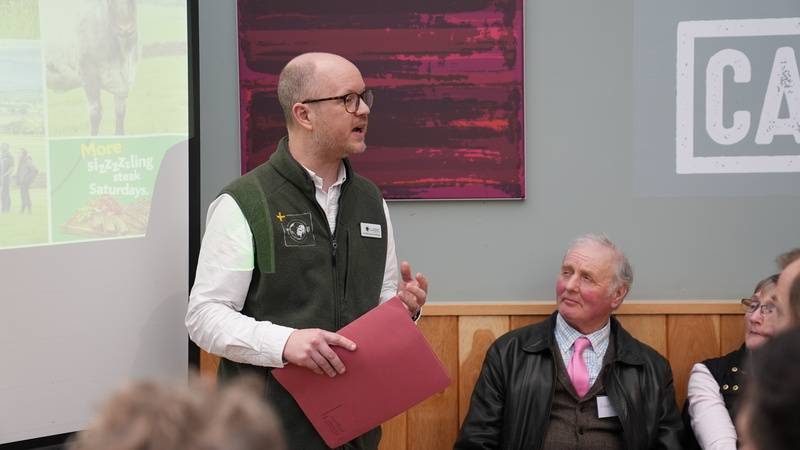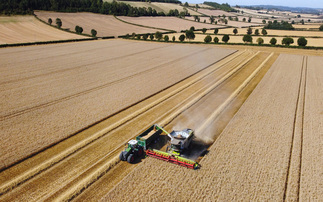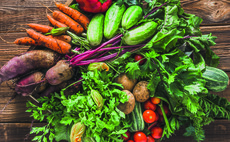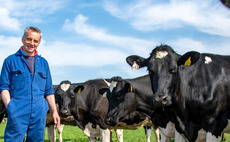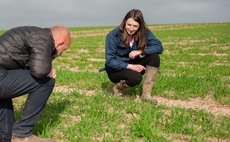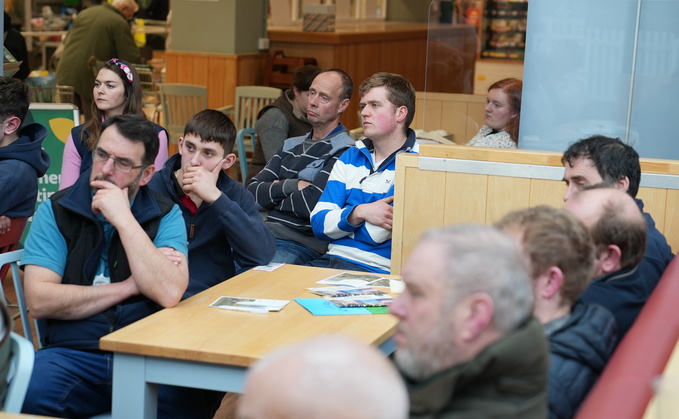
- 24 Hours in Farming is back - get involved and tell the world what really goes on in farming #Farm24
When doing your weekly shop, it is not very often that you see a cohort of farmers walking around the supermarket in their wellies – the very same farmers who work tirelessly to produce the food on the shelves.
But this is exactly what happened at the Morrisons store in Skipton, Yorkshire, in a bid to bring together those who supply the supermarket chain. The approach was a well-rounded one; at the heart of it was the idea of bringing farmers together, as taking time off the farm is not always easy and this provided a much-needed opportunity.
A quick cup of tea, a slice of cake and a chat to a fellow farmer is, sometimes, all anyone needs.
READ NOW: Yorkshire fourth-generation young farmer hopes to continue family hill farm
Consumer habits
But it was also about insight and learning. Morrisons prides itself on putting its producers at the core of all it does, and the farmers who attended the meet-up heard about the supermarket's various schemes, along with some consumer research data. Price, of course, came at the top of shoppers' lists, but it also highlighted farmer stories resonate with customers – customers put supporting British farmers as their second most important reason to shop at Morrisons.
Morrisons is working to become even more customer-focused and hopes to get farmers in store to tell the British farm-to-plate story – but that story must be simple and effective. An example of this is the supermarket's ‘Chuckle Eggs' range: a price-savvy product which heavily gives back to farmers who are doing their bit for the environment by planting trees and wildflowers for pollinators.
READ NOW: Drive to achieve net zero beef production for one family farm
Net zero farming
There was also a focus on sustainability and the goals for net zero, with support present from the Sustainable School of Food and Farming and Carbon Toolkit (see ‘Sustainability' panel for more information).
Emma Nelson, senior livestock manager for Morrisons, says: "This started from a farmer relationship activity and developed from there, but the idea to have it in the cafe is brilliant. We are moving to be more customer-focused and getting farmers in store to tell that British story."
She also highlights that this is a way to ensure farmers feel appreciated for the work they do.
Shopper habits
At the start of the meeting, farmers were presented with key statistics and insights into shopper habits. Many shoppers are driven by price and 99 per cent of UK households buy meat, fish or poultry each year. But the way people are eating is changing:
- Consumers are switching to cheaper proteins
- Young families account for 90 per cent of the growth for meatless meals
- 58 per cent say it is cheaper to eat meatless evening meals
- 35 per cent exclude meat from evening meals
- Red meat features less
- More shoppers are choosing British rather than imported
- 58 per cent are going to spend less on the weekly food shop
- More customers are buying ‘loose' food with less plastic packaging
Encouraging sustainability
There is a real drive to ensure farmers are armed with the tools they need to work more sustainably and to have carbon at the forefront of their minds. Working with the School of Sustainable Food and Farming (SSFF), Alex Hardie, business development manager at SSFF, says that sustainability is about having a robust, sustainable business – not just about the environment. If you have a sustainable business, you can produce food in a profitable, sustainable way. The finishing presentation from Carbon Toolkit focused on discussing why farmers should think about reducing on-farm emissions and the impact it could have on their business.
Key points were:
- Livestock management
- Energy efficiency
- Nutrient management
- Grassland management
- Soil management
